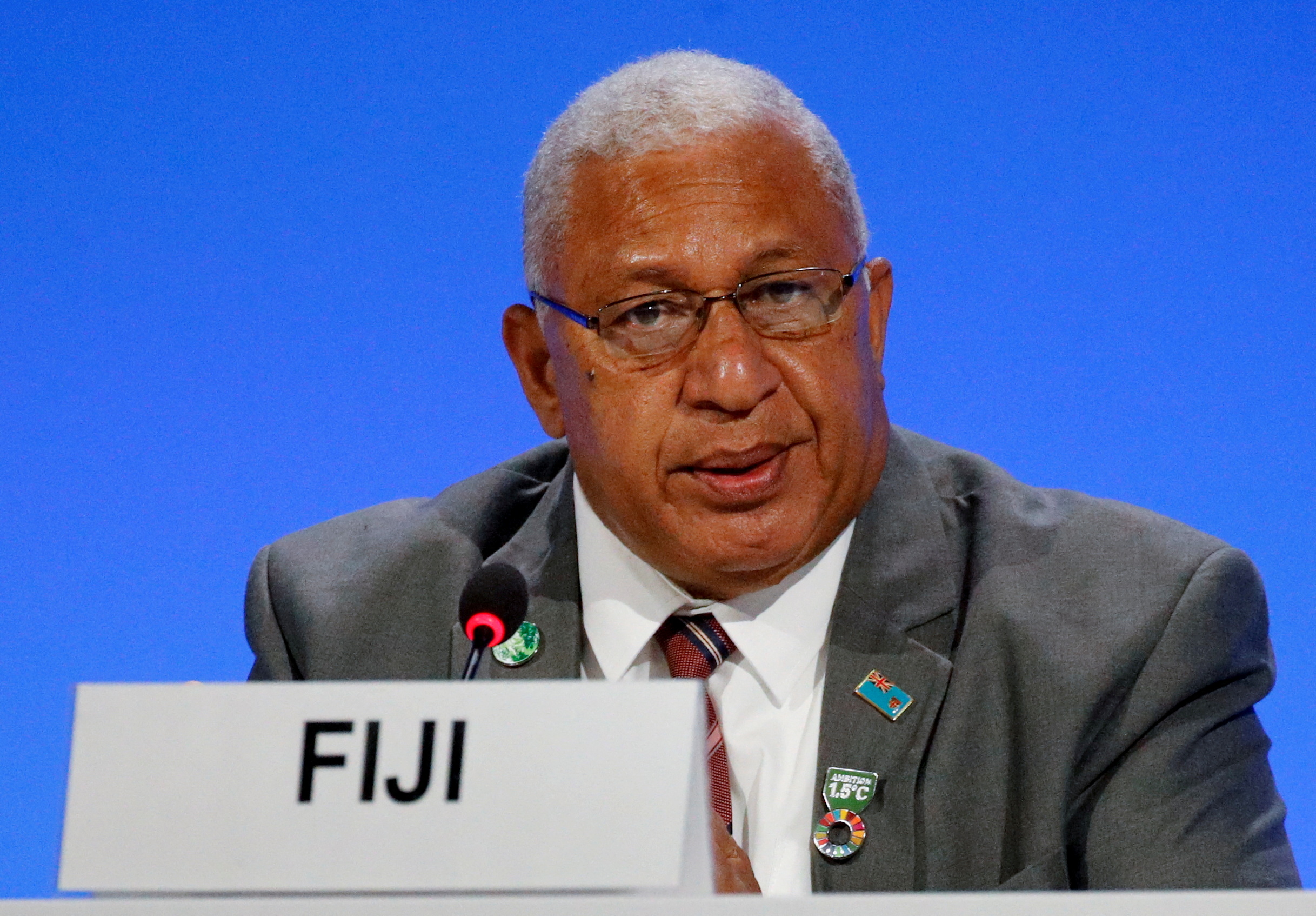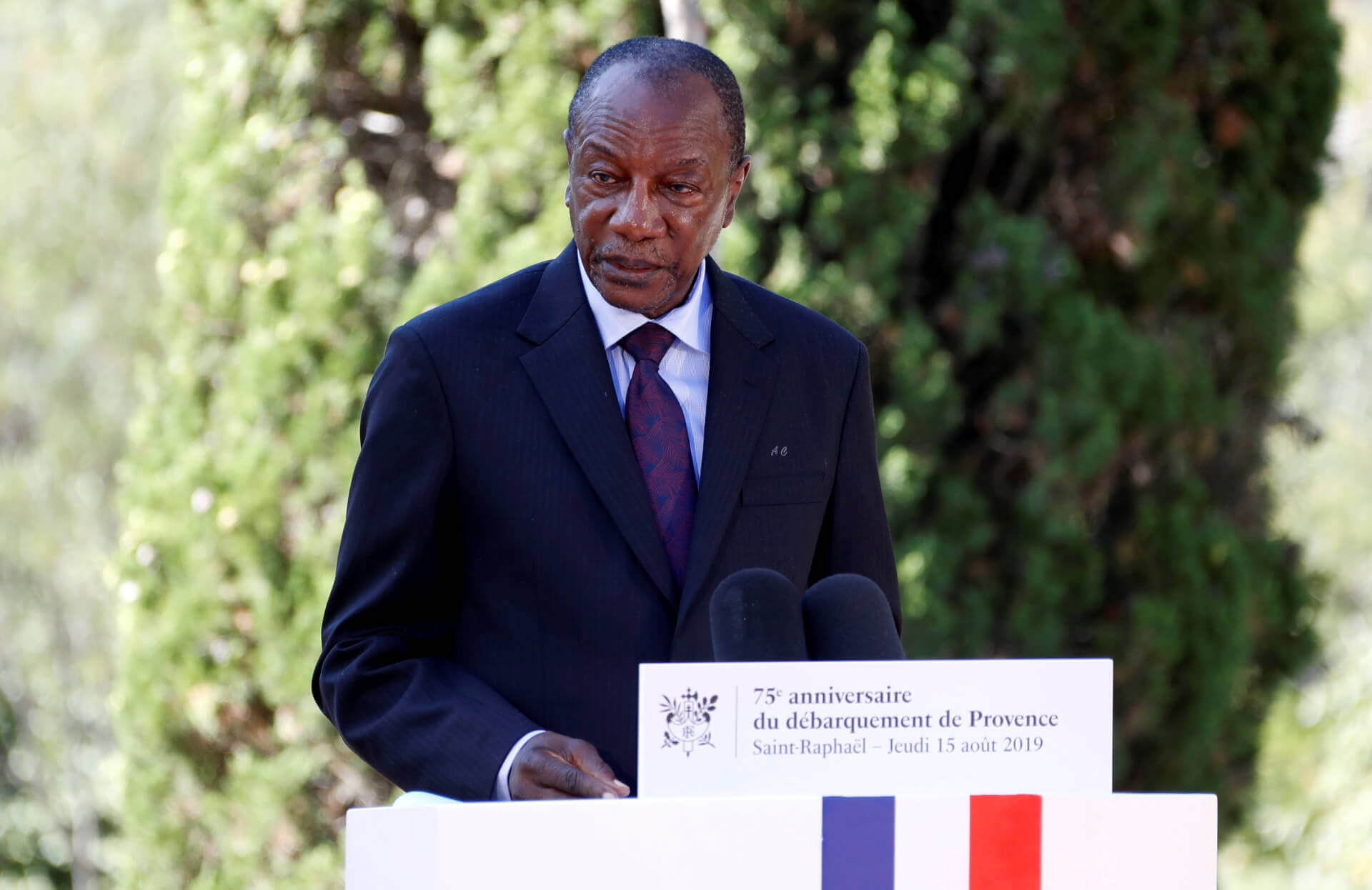South Asia
During a visit to Pakistan-occupied Kashmir on Sunday, Organisation of Islamic Cooperation Secretary-General Hissein Brahim Taha, laid a wreath at a monument built to commemorate those who have died fighting for the Kashmir cause. In May, he opposed India’s plan to redraw the electoral constituencies in Jammu and Kashmir, which he said would alter the region’s demographics and violate Kashmiris’ rights. [Associated Press of Pakistan]
The Pakistani army confirmed that six civilians were killed and 17 injured during an “unprovoked and indiscriminate” by Afghan border security forces yesterday. It added that the Pakistani security officials gave a “befitting” and “measured” reply. [Geo TV]
Central Asia and the Caucasus
United Nations special rapporteur for human rights Mary Lawlor on Friday called on the Tajik government to “eliminate the intense atmosphere of fear” prevailing among human rights activists. Noting that civil society groups and rights activists in the country are routinely harassed for their work, she urged President Emomali Rahmon to fulfil Tajikistan’s international obligation of cooperating with human rights defenders. [Radio Ozodi]
The Azerbaijani foreign ministry on Sunday sent a note of protest to Russia over Russian peacekeepers’ alleged “illegal exploitation and looting” of Nagorno-Karabakh’s natural resources. The ministry accused the peacekeepers of conducting illegal activities in gold and copper mines in the region, demanding that Russia “strictly observe the sovereignty and territorial integrity” of Azerbaijan. [Anadolu Agency]
East and Southeast Asia
China’s Academy of Information and Communications Technology announced that it will retire its COVID-19 tracking service, the “Mobile Itinerary card,” on Tuesday. The move is part of a series of relaxations that have been introduced after thousands took to the streets in various cities to protest against the country’s strict zero-COVID policy. [CNN]
Jimmy Lai, the founder of Hong Kong’s now-shuttered pro-democracy newspaper Apple Daily, received a fresh jail sentence of almost six years on Saturday. The 75-year-old was found guilty of fraud in a contractual dispute. Lai has already completed a 20-month jail term for participating in protests and unauthorised assemblies. He also faces the possibility of a life sentence during his upcoming trial on breaching the national security law. [The Standard]
Europe
Germany is considering introducing stricter gun laws after arresting 25 and identifying 50 others who were planning to conduct several attacks in a bid to overthrow the government. Federal Minister of the Interior and Community Nancy Faeser said that the authorities need to “exert maximum pressure,” pointing to government statistics showing an increasing number of individuals aligning with extremist groups. [Deutsche Welle]
The Ukrainian president’s representative on children’s rights and rehabilitation, Darya Gerasimchuk, claimed on Friday that Russia has deported over 13,000 Ukrainian children to Russia during the course of the war. She added that this is not the “final figure” of the number of children Russia has “stolen.” [Interfax]
On Sunday, Serbian protestors in northern Kosovo blocked main roads leading to two border crossings with Serbia with trucks and other heavy-duty vehicles. They also exchanged gunfire with the police on Saturday over the arrest of a former Serbian policeman who participated in the mass resignations last month. Kosovan Prime Minister Albin Kurti urged the North Atlantic Treaty Organization’s peacekeeping mission, KFOR, to remove the roadblocks on Sunday. Similarly, Serbian President Aleksandar Vučić called for “calm.” [Reuters]
Latin America and the Caribbean
On Sunday, thousands of Peruvian citizens held nationwide protests to demand the resignation of newly-appointed President Dina Boluarte, who took over the top post after the impeachment of now-former President Pedro Castillo last week. They have called on the government to hold both presidential and congressional elections. At least two people have died since Castillo was removed from power last Wednesday, when he attempted to dissolve Congress and rule by decree. As things stand, Boluarte, who was Castillo’s vice president until last week, is set to stay in office until July 2026.[Associated Press]
Brazilian President-elect Luiz Inácio Lula da Silva revealed that he received a letter from Chinese President Xi Jinping that outlines Beijing's desire to broaden the two countries’ ‘strategic partnership.’ Brazil-China ties took a hit under outgoing President Jair Bolsonaro, who, at various points during his tenure, blamed China for intentionally unleashing the COVID-19 pandemic and openly mocked the efficacy of its vaccines. [teleSUR]

Middle East and North Africa (MENA)
Morocco is planning to supply the Ukrainian military with spare parts for T-72 tanks on the recommendation of the United States, becoming the first African country to provide military assistance to Ukraine. [Ukrinform]
Turkish President Recep Tayyip Erdoğan told his Russian counterpart Vladimir Putin during a phone call on Sunday to fulfil Russia’s obligations in a 2019 trilateral deal signed with the United States (US), under which Turkey agreed to halt its military activities in northeast Syria if Russia and US ensure that Kurdish militias withdraw from the Turkish border by at least 30 kilometres. In this respect, Erdoğan demanded that Russia “clear” Kurdish fighters from the region. [AFP]
North America
During a phone call with his Ukrainian counterpart Volodymyr Zelensky on Sunday, United States (US) President Joe Biden highlighted Washington’s efforts to strengthen Kyiv’s air defence, including the recent announcement of $275 million in additional military support, which included systems to counter the Russian use of unmanned aerial vehicles. He also pointed to last month’s $53 million package to “support energy infrastructure to strengthen the stability of Ukraine’s energy grid in the wake of Russia’s targeted attacks.” Zelensky, meanwhile, “expressed his gratitude for the unprecedented defence and financial assistance” provided to Ukraine from the US, which has helped “not only to succeed on the battlefield, but also to maintain the stability of our nation’s economy.” [The White House, President of Ukraine]
On Friday, Canadian Minister of Natural Resources Jonathan Wilkinson released the $3.8 billion Critical Minerals Strategy, which seeks to capitalise on a “generational opportunity” for clean and sustained growth. The plan is centred around economic growth, competitiveness and job creation, promoting climate action and environmental protection, advancing reconciliation with Indigenous Peoples, fostering diverse and inclusive workforces and communities, and enhancing global security and partnership with allies. [Natural Resources Canada]
Oceania
Australian Minister for Foreign Affairs Penny Wong announced sanctions against 13 Iranian individuals and two entities “involved in egregious human rights violations and abuses.” It also introduced human rights sanctions on seven Russian individuals for their role in the attempted assassination of former opposition leader Alexei Navalny. [Australian Minister for Foreign Affairs]
Fiji will head to the polls on Wednesday. Incumbent Prime Minister (PM) Frank Bainimarama, who seized power as a former military commander through a coup 16 years ago, currently leads the polls. His FijiFirst party is closely matched by long-time rival Sitiveni Rabuka, an ex-PM and military commander who himself orchestrated two coups in 1987. [Manila Times]
Sub-Saharan Africa
The United States Department of Treasury's Office of Foreign Assets Control on Friday sanctioned former Guinean President Alpha Condé, who was ousted via a military coup last September. The Treasury determined that in the lead-up to a constitutional reform in March 2020 that allowed him to run for a controversial third term, security forces “engaged in violence” against opposition supporters. This violence continued after the October 2020 election as well. [US Department of the Treasury]
On Friday, French Foreign Minister Catherine Colonna met with Ivorian President Alassane Ouattara and her counterpart Knadia Camara in Abidjan to discuss trade and security matters. France has roughly 900 troops stationed in the country. Colonna said France is also looking to expand investment in the country, saying it “believes in the potential of Côte d'Ivoire.” [africanews]

